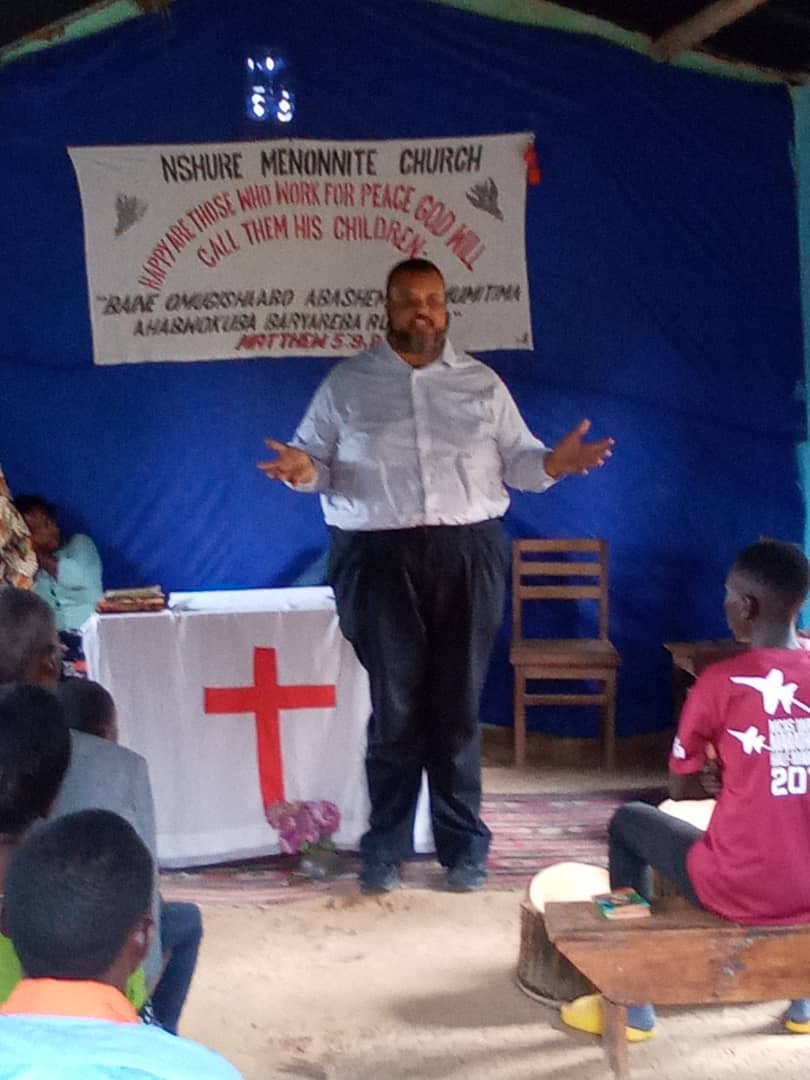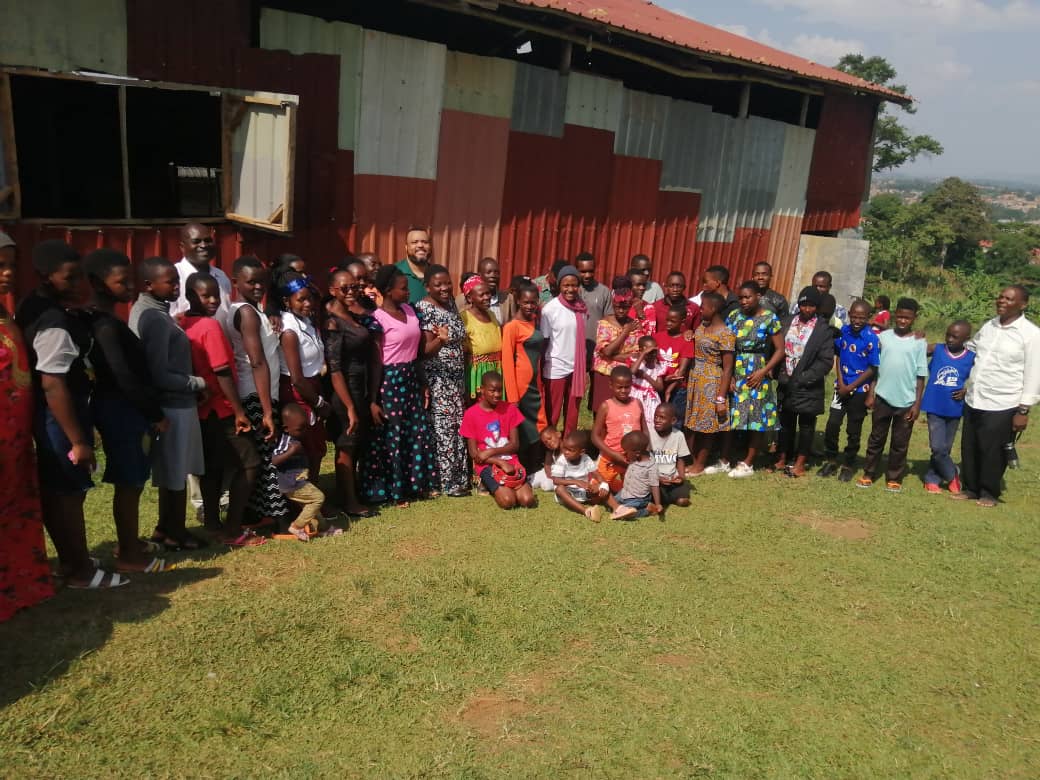“MWC brings people from different cultural backgrounds together into one basket,” says Bishop Simon Okoth of Mennonite Church Uganda.
A chance airport encounter allowed Simon Okoth to bring that cultural mixing to Mennonite congregations in his country.
Departing Semarang after Assembly, Rashard Allen recognized Simon Okoth by his event lanyard. And Simon Okoth recognized Rashard Allan, director of music and worship at Neffsville Mennonite Church in Pennsylvania, USA, who was part of the international ensemble for Assembly 17.
“I was touched by the way he was singing and the way the international choir presented their songs,” says Simon Okoth who recognized Rashard Allen from the stage.
Their boarding-lounge conversation ended with an invitation to Uganda.
Over WhatsApp, the Ugandan church leader and the American worship director made plans. In January 2023, Rashard Allen (doctor of worship studies from the Robert E. Webber Institute for Worship Studies) would conduct two three-day seminars for Mennonite congregations in rural Uganda.
“Worship is a holy conversation,” says Rashard Allen. His goal was to help participants “to worship plan so we can worship with greater understanding and so congregations can worship with greater intention.”
“The people were proud as Mennonites to see a Mennonite from a distant land coming to join them in worship, in fellowship and to guide them in understanding worship,” says Simon Okoth.

“I was struck by people’s faith…. And by their talent in terms of ministry and musicality,” says Rashard Allen. With a few parameters, participants separated into groups to compose a song from a psalm. “The songs they came back with were remarkable: they were songs they could starting using immediately in their churches. It was a wonderful blessing for me to see.”
He also gave concerts of African American sacred music. “Being able to share that part of the African diaspora was a major blessing.”
Singing can take more than an hour at the beginning of a worship service in Uganda and another period at the end. “It is the moment when we get to meet,” says Simon Okoth. “What tunes our minds, what subjects us to the feeling of God is the singing.”
In one congregation, people match their singing to background instrumentals from a cellphone plugged into a speaker. In another, a talented preteen supplies a drum kit, melody and bass line from a keyboard, “like he’s been there for 20 years,” says Rashard Allen. Another congregation sings acapella with accompaniment from three large drums.
“The sense of joy they bring when they sing and dance is rather striking to me,” says Rashard Allen. “They sing in 3 or 4 different languages: they know the songs, they know the meaning, and they sing with gusto.”
“MWC is doing a good job when you bring us together,” says Simon Okoth. “We are able to study the culture, to interface, to bond freely.”
“We are uniquely imprinted with image of God. So for us to experience the fullness of the kingdom of God, we need to know one another as much as we are able,” says Rashard Allen.

“I love that MWC regards everyone as equals: there is no hierarchy, no sense of paternalism or patronizing,” he says. MWC connects people, helping create opportunities for “cross cultural exchanges, singing one another’s songs, not just exporting [one] culture’s songs; mutual sharing with each other.”
Singing from the international songbook in 15 different languages at Assembly is “a piece of what heaven must be like. We get a deeper understanding of one another’s cultures….what is important to them in their faith…what they experience through their songs,” says Rashard Allen.
Meeting Mennonites from around the world through MWC events, “brings into our mind the oneness in creation, despite the fact that we live in different geographical locations, we speak different dialects or tongues, God is still one,” says Simon Okoth. “MWC bringing us together is one way of confirming that we are good creation of God.”